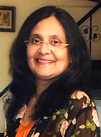Now that we can choose whether to have a job and a family, to be a part-time or full-time parent, one would think our lives would be easier. So why does whatever we choose seem to be wrong? And here I am talking specifically about women.
Our relatives, friends, even random neighbours, always seem to be eager to tell us that we should be doing something different from whatever we are actually doing. That we have a right to work, that we have no right to work; that home and family are boring, that they are fascinating; that our children should be with us, that they should not be with us, that they should be with their granny, with a nanny, in a crèche; that we are contributing a lot, that we are not contributing at all; and so on. These contradictions do little for anyone’s self-confidence or peace of mind.
We, the women, have always been told not just what to do, but also what to think. And we have been told this mostly by women. I don’t know why we can’t leave one another alone, respect each other’s feelings, and I do think – at the cost of invoking the wrath of many – this to be a particularly female characteristic that we cannot. I have not heard of men going around asking each other when they plan to have a baby.
We are not an over-confident lot. Our propensity to guilt makes us hugely sensitive. And it is made much worse by being at home, where our sense of identity and self-confidence are painfully vulnerable. If a colleague in the office tells us that they think we ought to be doing something other than what we are actually doing, we may feel upset. But if we are being paid well for doing whatever we are doing, and even been promoted once or twice, we can brush off the suggestion or even discuss the absurdity of it with our other colleagues. But sitting in the crisis situation of our kitchen on a bad day, the suggestion that we might be wasting our talents hits hard – real hard, at times.
However determined we may be that full-time family care is the right occupation for us, we would still be asked constantly, how we can stand it, and when we are going to stop doing it. What on earth do you do all day? Why don’t you get yourself a job? Aren’t you bored? are the standard questions.

The beauty is that everyone knows being a full-time mother is the most important job of all. It is also terribly hard and grindingly repetitive. Yet, women feel very strongly that if they do not work, they do not have any status. That they do not count in the society at all.
People are not prepared to introduce a woman as ‘Sunita’, who is very busy, looking after two children. There is no label. And labels are as important to women as they are to men. A label that just says ‘wife and mother’ is hardly worth the string to tie it with, not because being a wife and a mother is uninteresting in itself, but because the wearer is made to feel it is uninteresting.
What most women should have, in my opinion, is the freedom to choose, to be able to get childcare if necessary, and more importantly, to be able to get employment (could even be part-time) if needed or desired, without mortgaging their soul and conscience.
Many husbands feel ambivalent about their wives working. They tolerate it rather than encourage it, however welcome the money, and would rather the work went away and the wives came home. If a wife complains about work pressure, the husband almost always would ask her to quit.
Then there are men who complain that they do not have a choice; they have to work to look after their hearth and home. They also claim to be having a difficult time, as their positions are being usurped by women at work.
So, we can see that we all have our problems and there is a lot more to be gained from recognizing the fact and helping each other out, rather than standing in the middle ground and complaining about each other and our own selves. If we are able to do this, there will be no cause left for any kind of confusion.
 Sunita Pant Bansal hails from the Kumaon hills of the Himalayas, a region well-known for its crop of litterateurs. Her forte is decoding Hindu scriptures to show their relevance and application in today’s times. In her four decades of writing career, Sunita has authored hundreds of books for children and young adults on folk literature and mythology. For adults, her genres cover body, mind and soul.
Sunita Pant Bansal hails from the Kumaon hills of the Himalayas, a region well-known for its crop of litterateurs. Her forte is decoding Hindu scriptures to show their relevance and application in today’s times. In her four decades of writing career, Sunita has authored hundreds of books for children and young adults on folk literature and mythology. For adults, her genres cover body, mind and soul.




